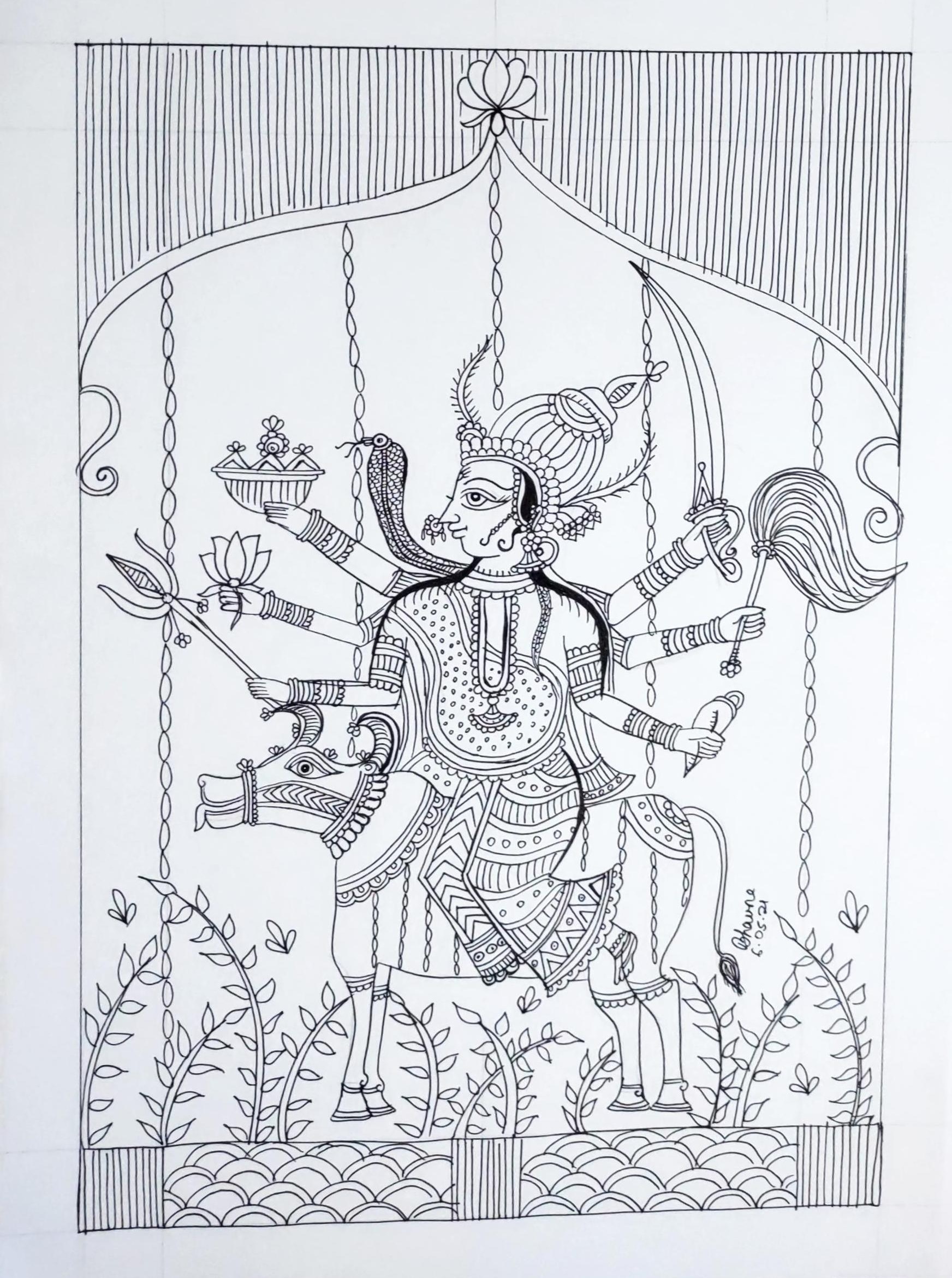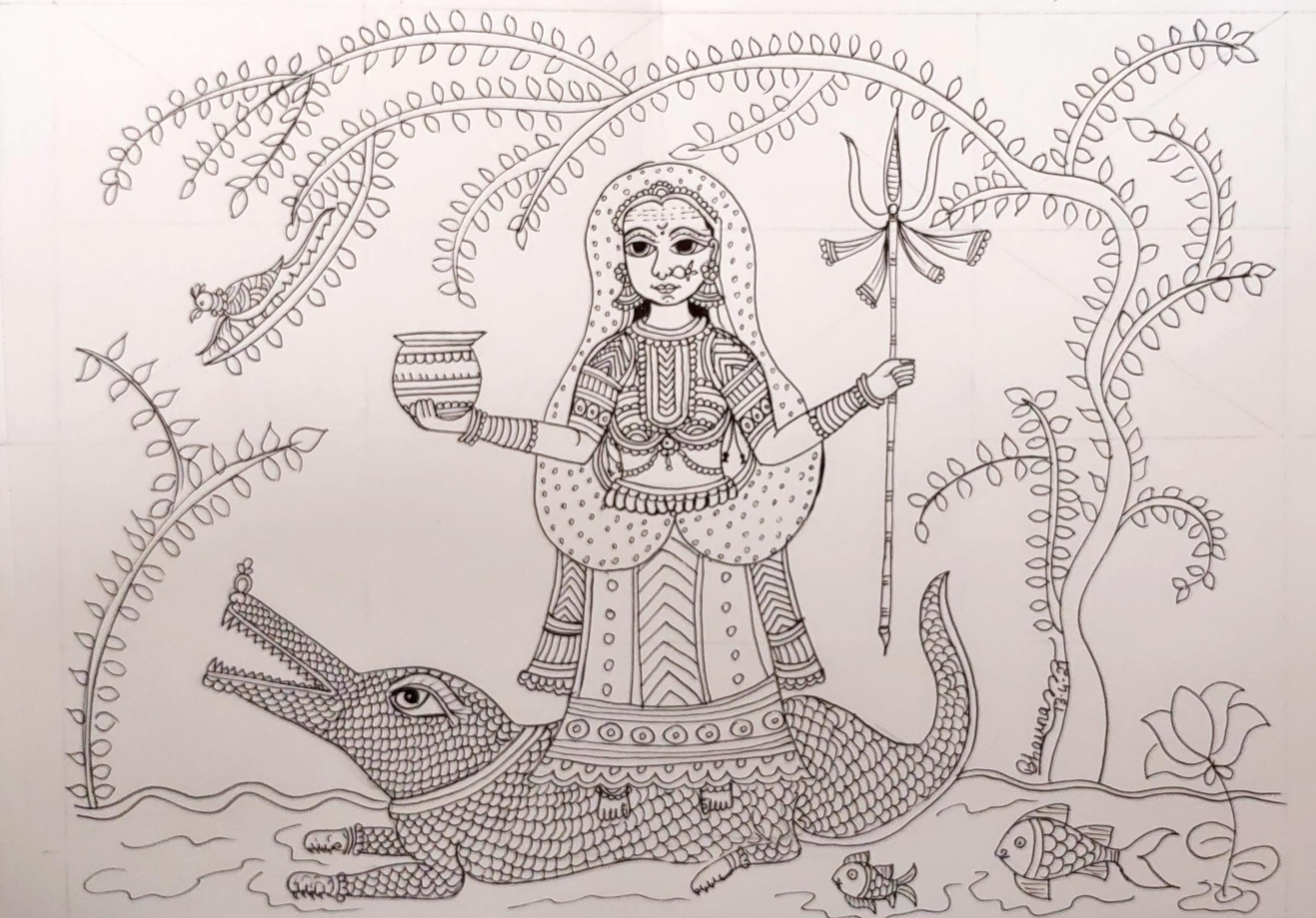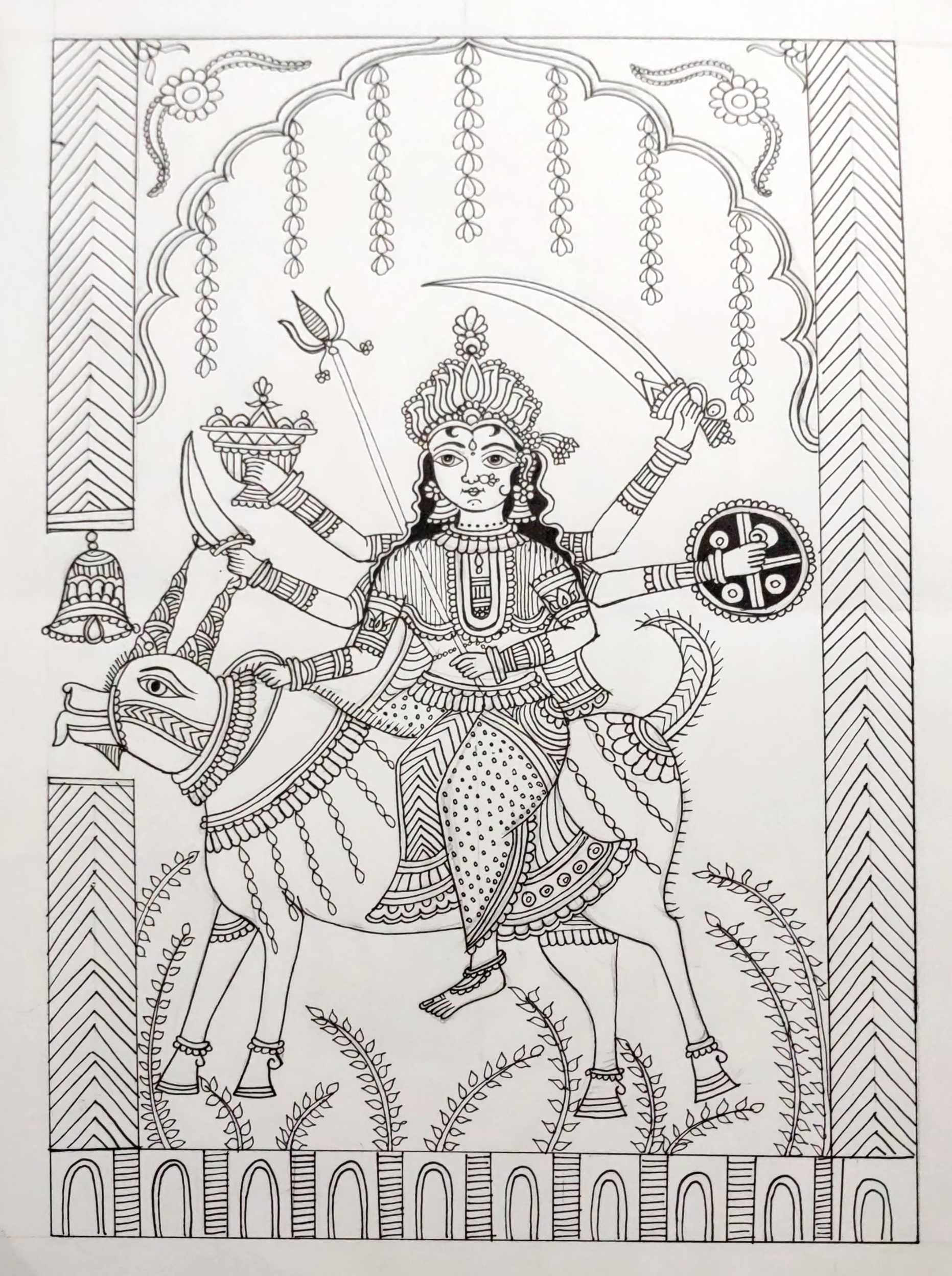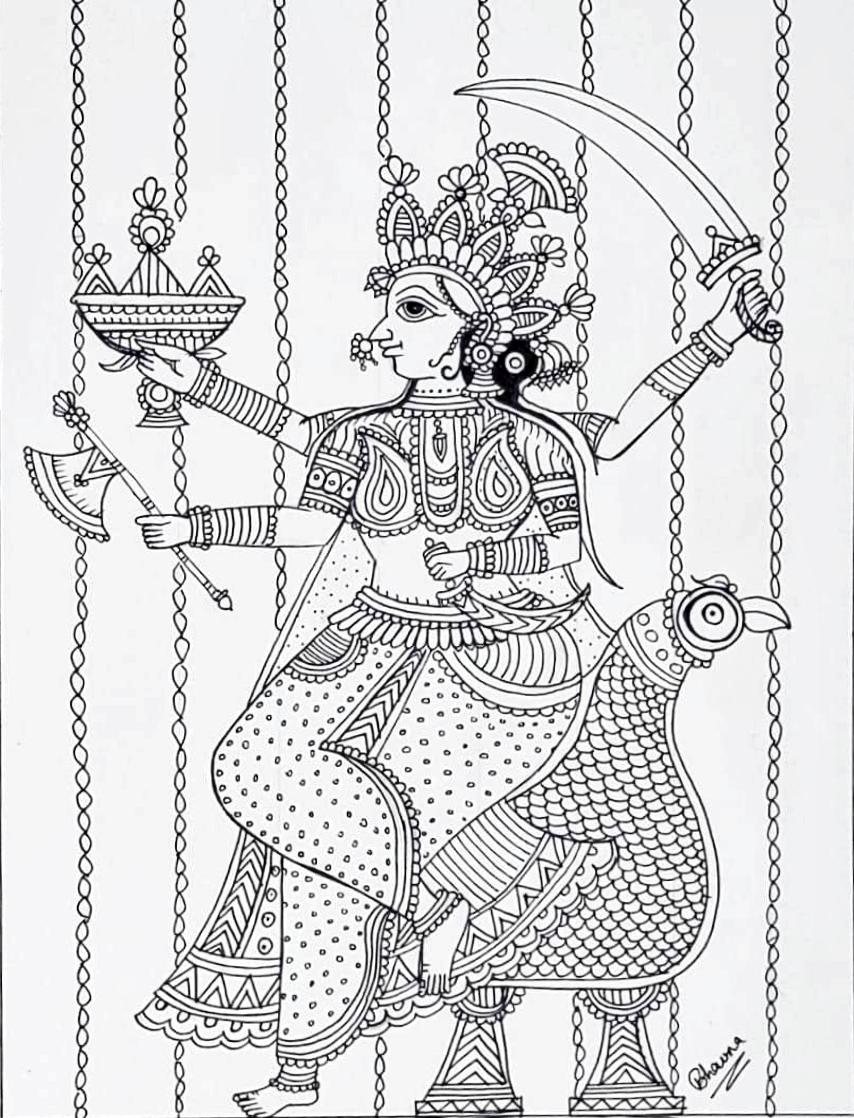Growing up in Mumbai, I had the privilege of experiencing and witnessing the diversity not only in food and culture but also in how people from different communities celebrated various festivities. After all, Mumbai was considered a multicultural city, home to individuals from different parts of India, each bringing a piece of their heritage with them.
Navratri, celebrated over nine nights, was a prominent festival in Hindu tradition, observed twice a year—once during Ram Navami and again during Diwali. The way Navratri was celebrated varied across regions. In Eastern and Northeastern India, Durga Puja was synonymous with the festival. In the South, the focus was on Goddess Kali, while the Western state of Gujarat burst into vibrant dandiya-raas celebrations. Ultimately, these nine nights symbolized the triumph of good over evil. As we navigated our daily challenges, the meaning embedded in these festivals was deeply personal and transformative.

For me, Navratri held special significance. As a young child, I grew up witnessing my mother keeping her fasts for the nine days, twice a year. I recall her bright face and warm smile as she celebrated her beloved deity, ‘Mata Rani’. Mata Rani, a Goddess whose ‘vaahan’ or the vehicle was a tiger (sher), was one that my mother revered and visited her temples. I fondly remember accompanying her to the Sherawali Mandir, tugging at her dupatta and peppering her with questions. As a child, I struggled to understand the significance of visiting temples or worshiping idols. I often asked her how she could be sure that God was listening amidst the throngs of people. Although I don’t remember many of the conversations, her warm smile and gentle guidance spoke volumes.
My mother’s unwavering faith in the Goddess instilled a sense of strength within her, and that essence became a part of me. While I did not follow rituals strictly or possess extensive knowledge about different festivals, I believed that faith was deeply personal and powerful. It could evoke meanings and stories that resonated with each individual, regardless of their beliefs.

In recent years, my understanding of Navratri has expanded through interactions with diverse communities, each sharing their narratives around food, culture, and celebration. For instance, in Mumbai, some residential complexes dedicated a night to garba, while pandals sprang up for Durga Puja after Navratri, setting the stage for Diwali. The energy was infectious. During Navratras, the tradition of wearing specific colors was prominent. If you traveled in Mumbai’s local trains during Navratri, you would have seen the vibrant sight of women in coordinated colors—a beautiful display of community spirit.
In my professional journey, I’ve been fortunate to earn the trust of many individuals who have shared their vulnerabilities and life stories with me. I’ve witnessed how faith—whether in a deity, a ritual, or even a simple belief, can be a lifeline for many. It was a similar faith that my mother held onto, shining brightly even in her final moments. Although I was too young to fully appreciate her relationship with her God before she left this mortal world, her enduring belief left an indelible mark on my life—a legacy of strength and resilience.
It is fitting to write this article on Navratri as a celebration of her brave life and all the strength and resilience she passed on to me and my sister.

A Taste of Navratri: Kara Chana
Food is an essential part of Navratri celebrations, and one of my favorite dishes is Kara Chana. In Sindhi, “kara” means black, referring to the black chickpeas we often prepare. This simple yet beloved dish evokes warm memories of family gatherings and festive meals.
Recipe for Kara Chana
Ingredients:
- 1 cup black chana (black chickpeas)
- 1 tablespoon cumin powder
- ½ tablespoon coriander powder
- Salt to taste
- 1 teaspoon red chili powder
- 1 teaspoon amchur powder (dry mango powder)
- 1 tablespoon whole cumin seeds
- 2 tablespoons oil
- A bunch of fresh coriander for garnishing
Method:
- Soak the black chana for 12 hours, then pressure cook until soft. Strain and set aside.
- In a pan, heat the oil and add whole cumin seeds once hot.
- Add the dry spices (excluding the amchur powder) and stir briefly, being careful not to burn the spices.
- Quickly add the cooked black chana and sauté. Alternatively, you can add all the spices later after tossing the chana in oil and cooking for a few minutes. Adjust the spices to your taste.
This recipe is straightforward yet holds a special place in my heart. Paired with fresh puris and kheer, it is a soul-satisfying dish that connects me to my roots. As we celebrate Navratri, let’s cherish the strength, resilience, and vibrant cultures that enrich our lives, all the while savouring the delightful flavours that bind us together.
*Artworks by Bhavna

